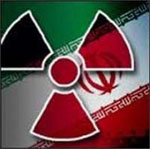 Reuters: World powers will urge Iran on Friday to accept their offer to ease some economic sanctions if it stops its most sensitive nuclear work, in talks aimed at easing tensions that threaten to boil over into war.
Reuters: World powers will urge Iran on Friday to accept their offer to ease some economic sanctions if it stops its most sensitive nuclear work, in talks aimed at easing tensions that threaten to boil over into war.
By Justyna Pawlak and Yeganeh Torbati
 ALMATY (Reuters) – World powers will urge Iran on Friday to accept their offer to ease some economic sanctions if it stops its most sensitive nuclear work, in talks aimed at easing tensions that threaten to boil over into war.
ALMATY (Reuters) – World powers will urge Iran on Friday to accept their offer to ease some economic sanctions if it stops its most sensitive nuclear work, in talks aimed at easing tensions that threaten to boil over into war.
The six powers – the United States, Russia, China, France, Britain and Germany – will meet Iranian negotiators in the Kazakh city of Almaty for the second round of talks this year, aiming to settle a decade-old dispute over Tehran’s nuclear work.
With an Iranian presidential election in June complicating decision-making in Tehran, there is little chance of a breakthrough, but Israel has indicted its patience with diplomacy is running out.
Israel has threatened to bomb Iran’s nuclear facilities if Tehran does not curb the activities it suspects are aimed at making a nuclear bomb.
Without a conclusive deal in sight, Western diplomats are hoping for at least a serious discussion of specific points of their proposal, made at the last talks in February.
“We hope that Iran comes prepared, makes a substantive and concrete response that really enters into serious … negotiations to meet the international community’s concerns,” a senior U.S. administration official said on Wednesday.
Iran has resisted international pressure, arguing its uranium enrichment is for peaceful purposes only and therefore should be allowed to continue, under international law.
Its negotiators arrived in Almaty with their own proposals, the Iranian media reported without giving any details. Chief negotiator Saeed Jalili struck a defiant tone.
“We think our talks tomorrow can go forward with one word. That is the acceptance of the rights of Iran, particularly the right to enrichment,” Jalili said in a speech at a Kazakh university.
World powers say Tehran has relinquished that right by hiding its nuclear work from United Nations inspectors in the past and refusing to grant them full access.
Talks were due to start at 10:30 a.m. (12.30 a.m. EDT) and last through Saturday.
AT ALL COST
If they fail to produce sufficient progress, Western governments are likely impose new economic sanctions, with the double aim of pressuring Tehran while seeking to persuade Israel to hold back from any military action.
In Israel, widely assumed to be the only nuclear power in the Middle East, Prime Minister Benjamin Netanyahu told visiting U.S. senators that Tehran’s nuclear work must be stopped.
“We cannot allow a situation in which a regime that calls for our annihilation has the weapons of annihilation. And I think that must be stopped at all cost,” he said.
U.S. President Barack Obama sought to cool tempers during a trip to Israel in March, saying diplomacy was the best option, but he alluded to the possibility of last-resort military action.
Experts say Iran would likely seek to keep diplomacy on track ahead of the election, in part to avert new sanctions, but without coming close to any deal.
There is broad unity within the Iranian political establishment on pursuing the nuclear program. Policy on the issue is directed by Ayatollah Ali Khamenei, Iran’s supreme leader, rather than by the president.
“The nuclear talks will be affected by the election insofar as the leadership is concerned about maintaining internal stability throughout the election,” said Emanuele Ottolenghi, of the Foundation for the Defense of Democracies, a think-tank that has advised the U.S. government on sanctions against Iran.
At the core of the powers’ concerns is Iran’s enrichment of uranium to 20 percent fissile purity, a level that closes an important technological gap en route to making weapons-grade material.
During the last meeting in Almaty in February the powers told Iran to stop producing such uranium, ship out most of its stockpile and shutter its Fordow facility, buried deep in a mountain near the city of Qom.
In return, they offered to ease a ban on trade in gold and other precious metals and an import ban on Iranian petrochemical products.
(Additional reporting by Dan Williams in Jerusalem; Editing by Robin Pomeroy)


